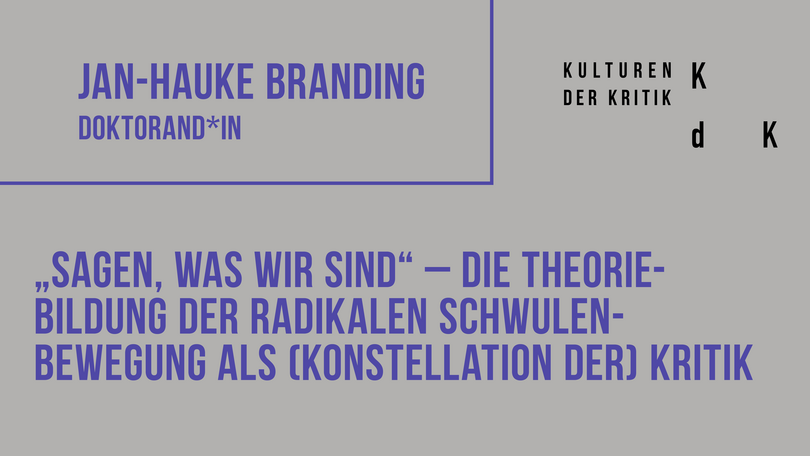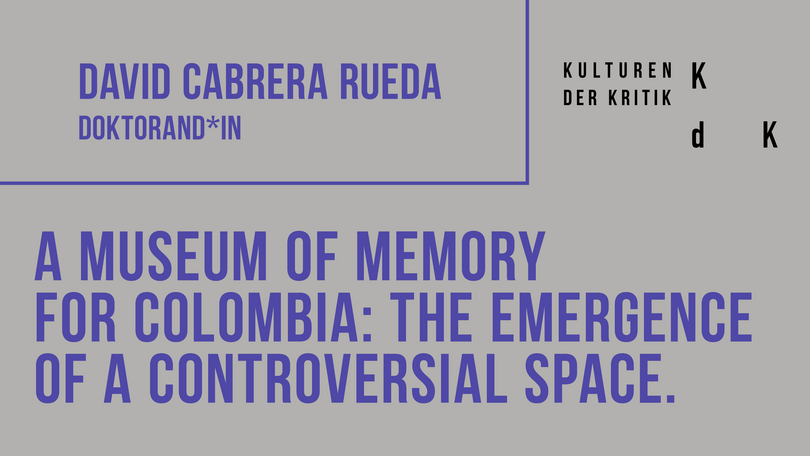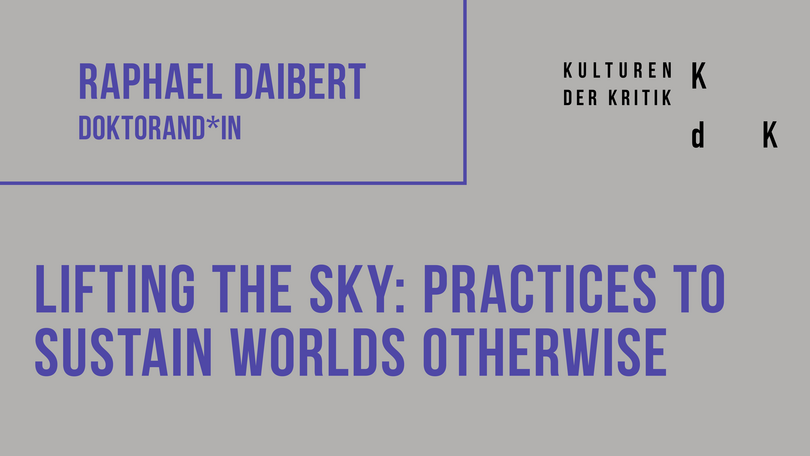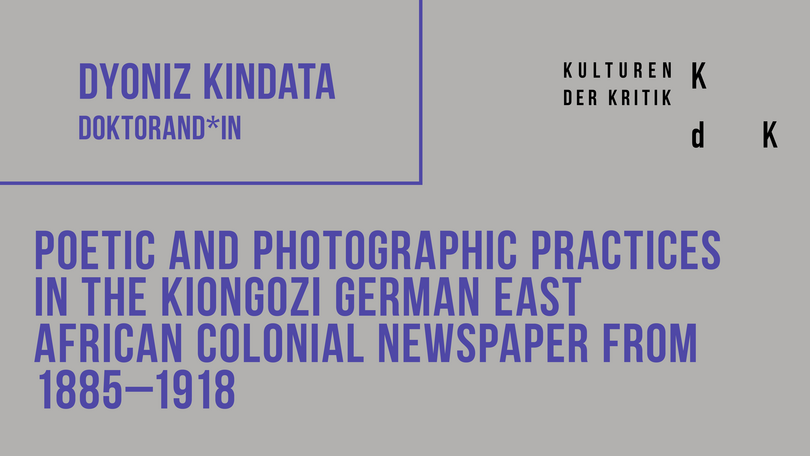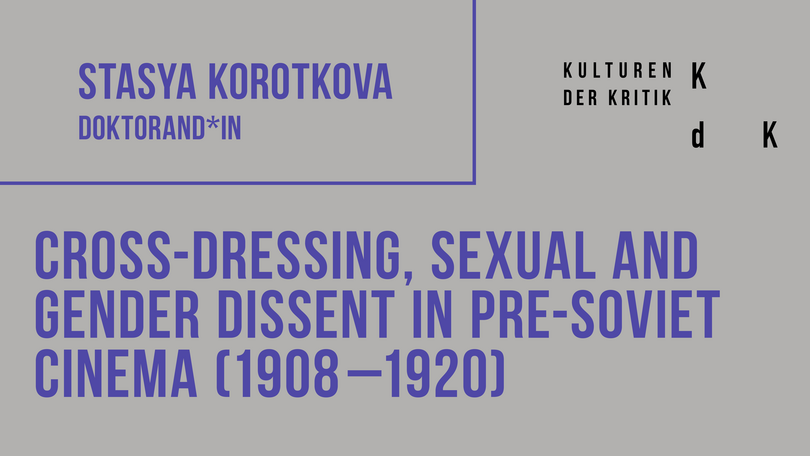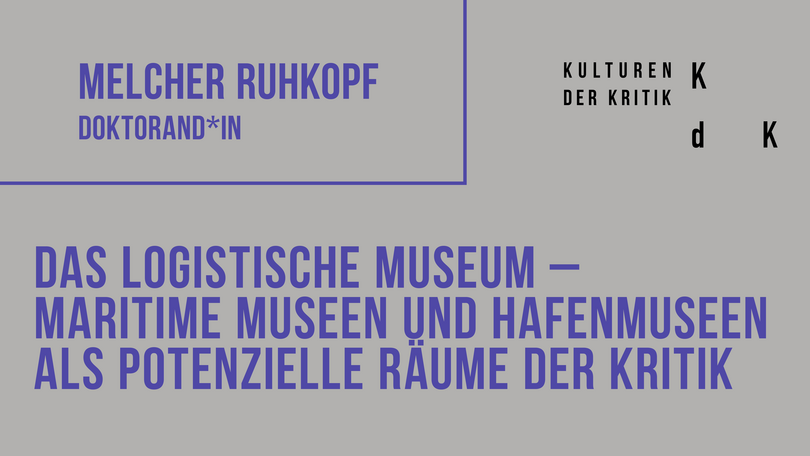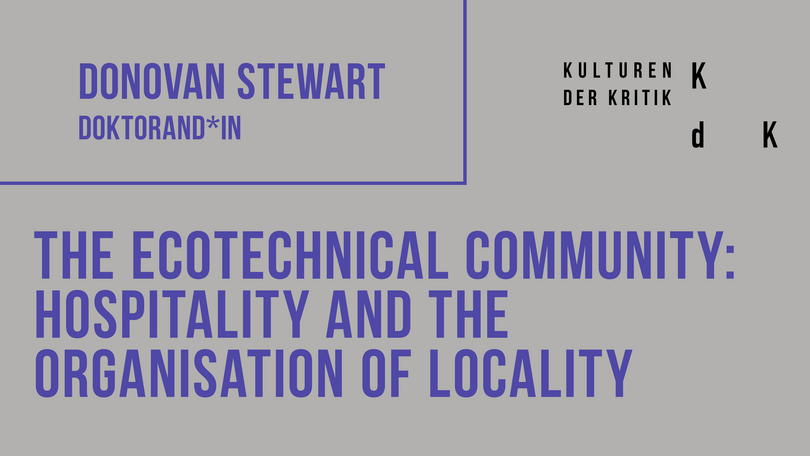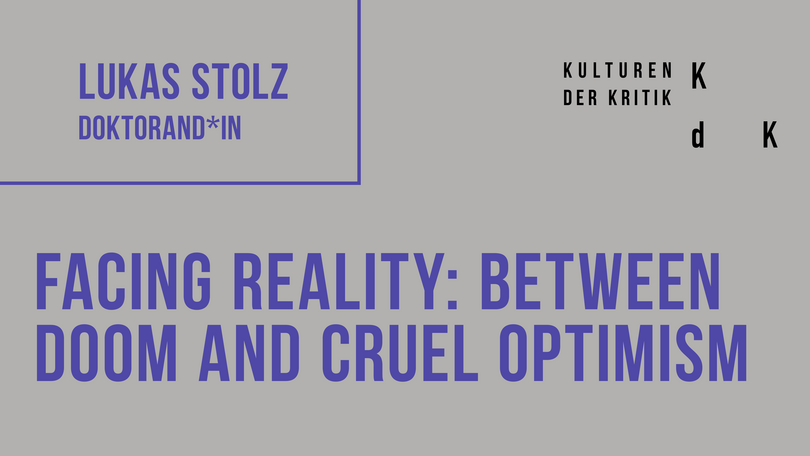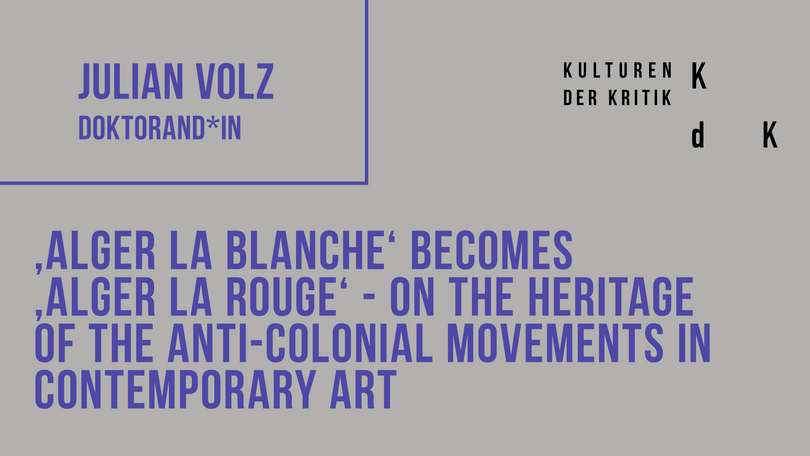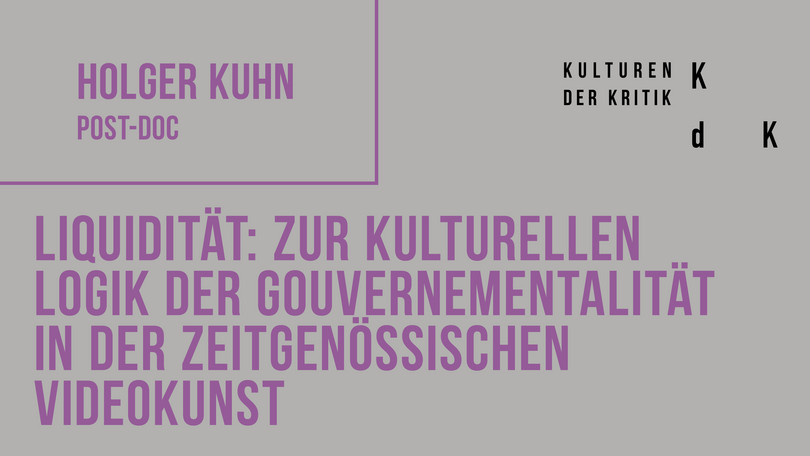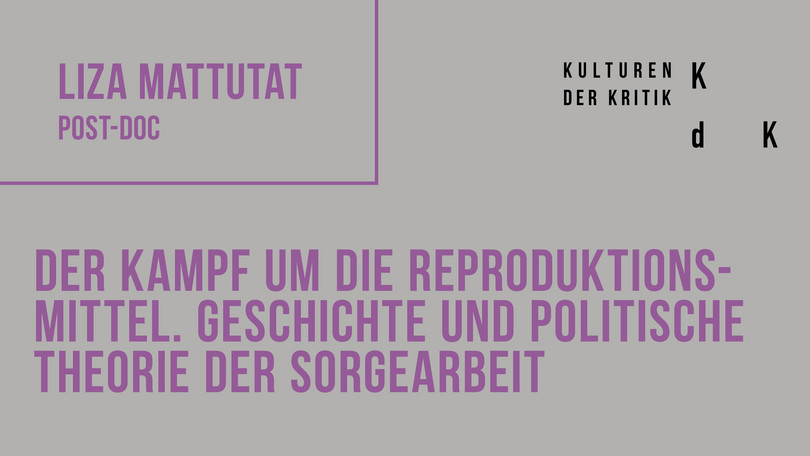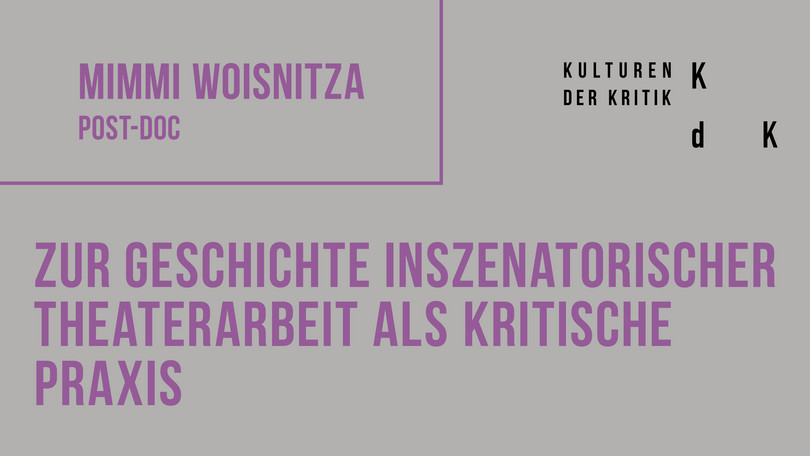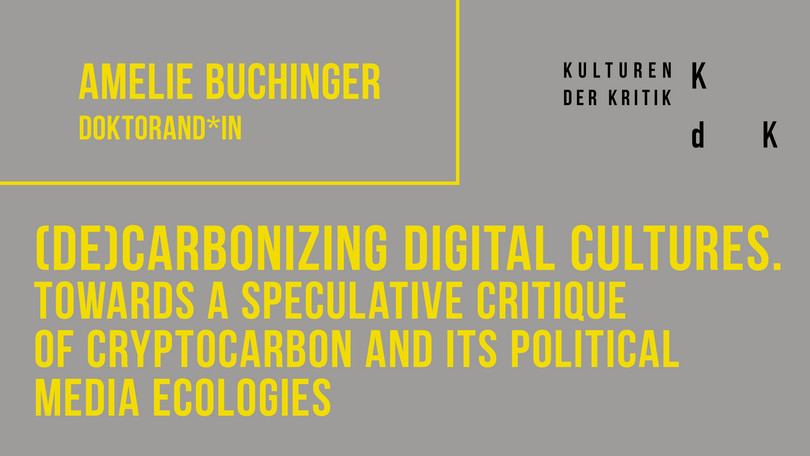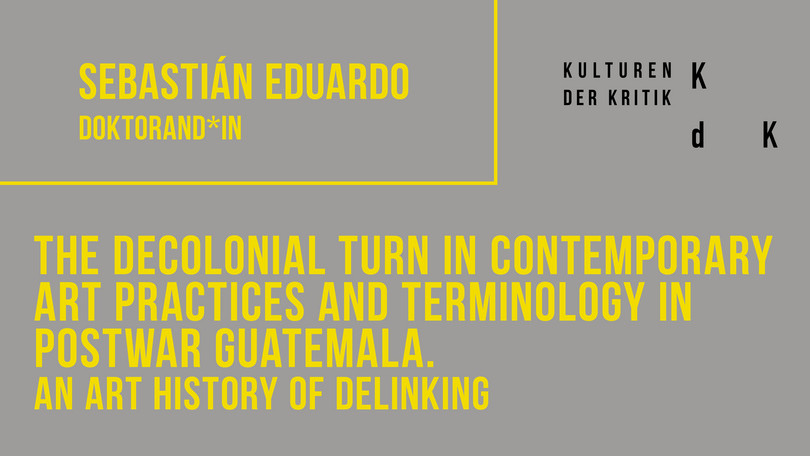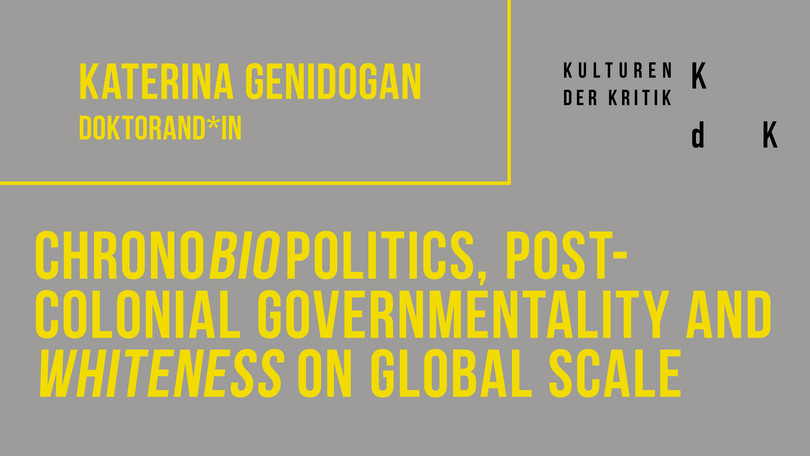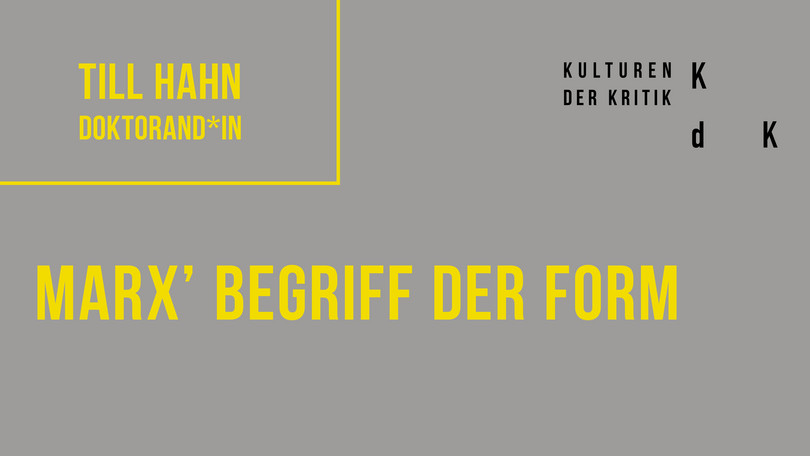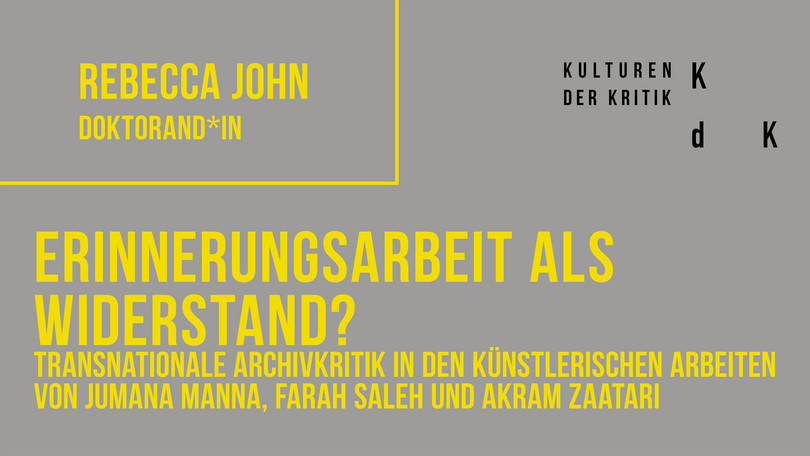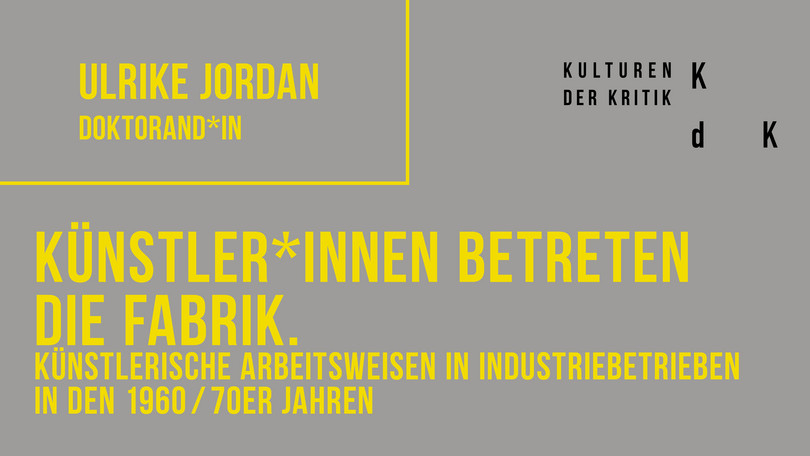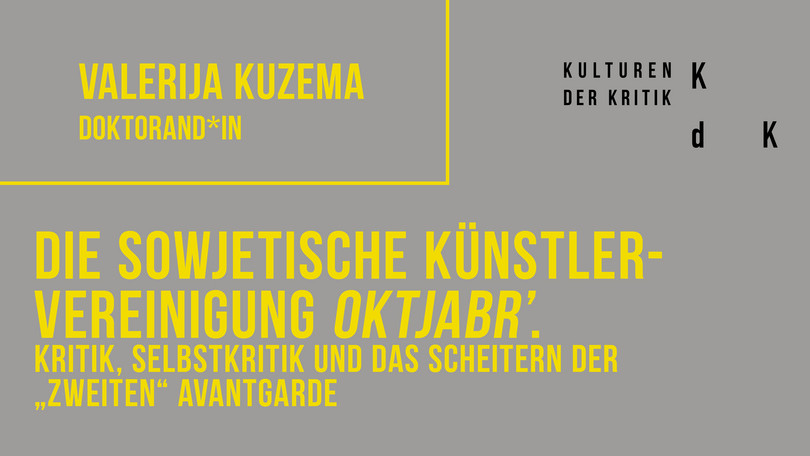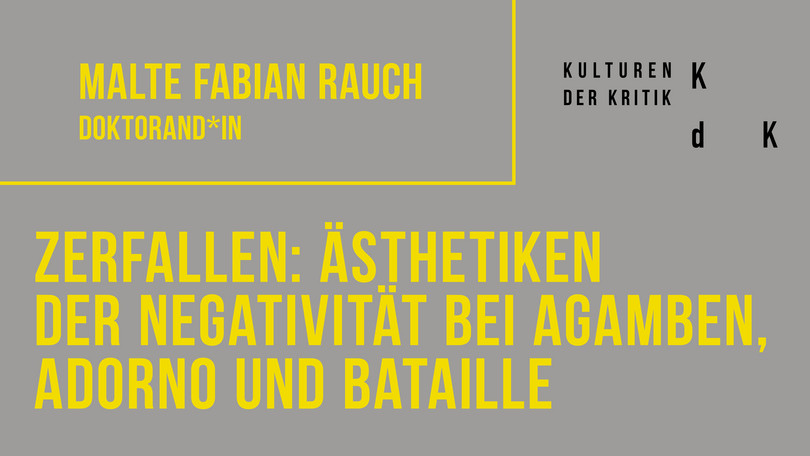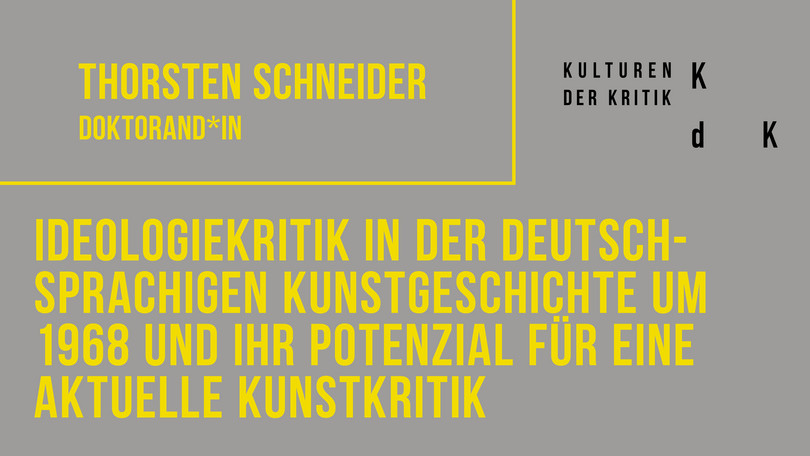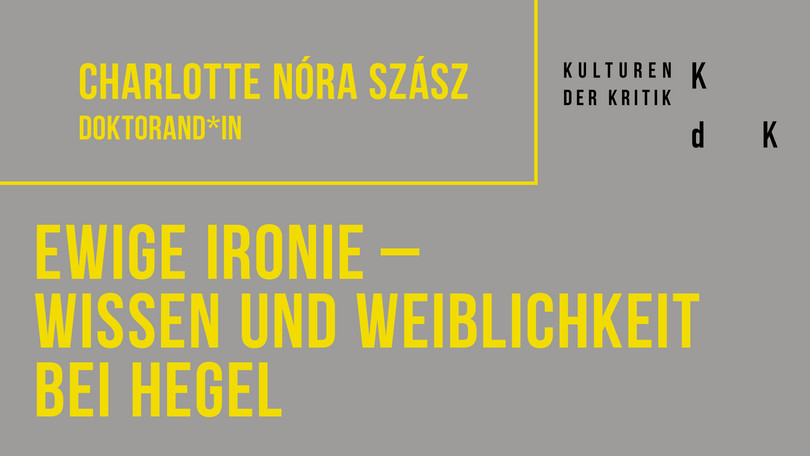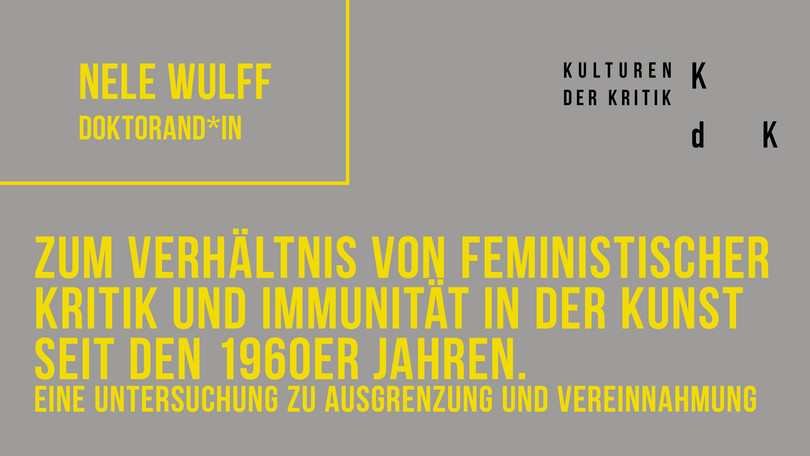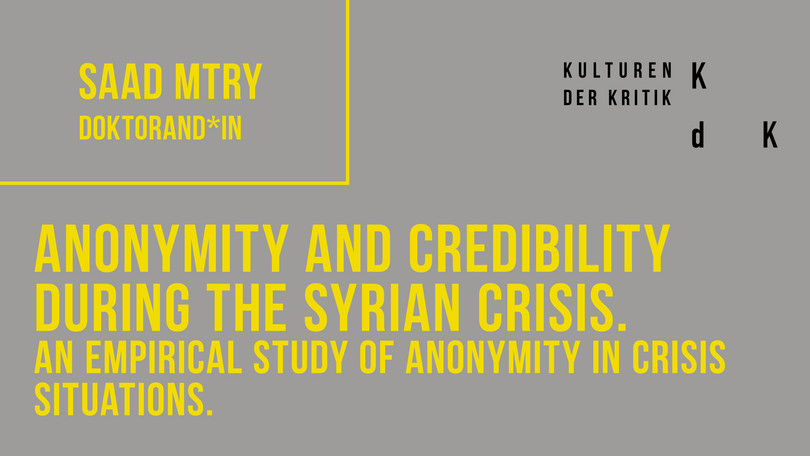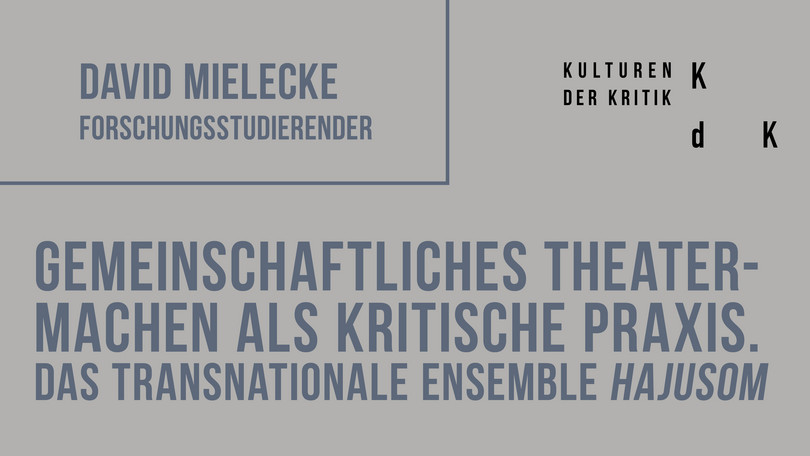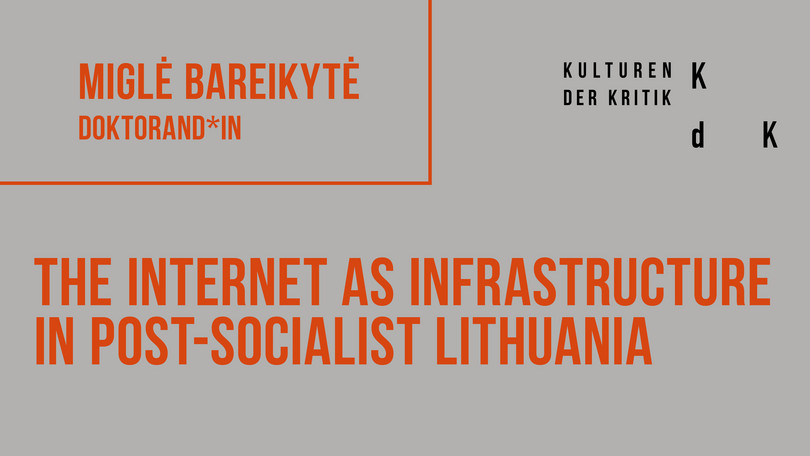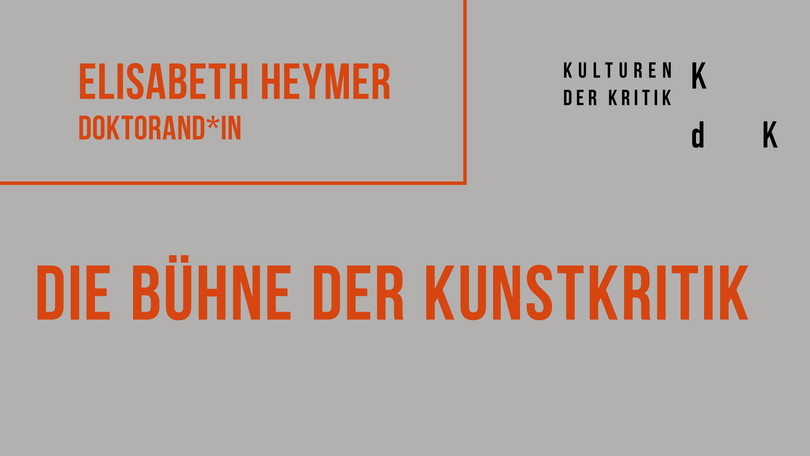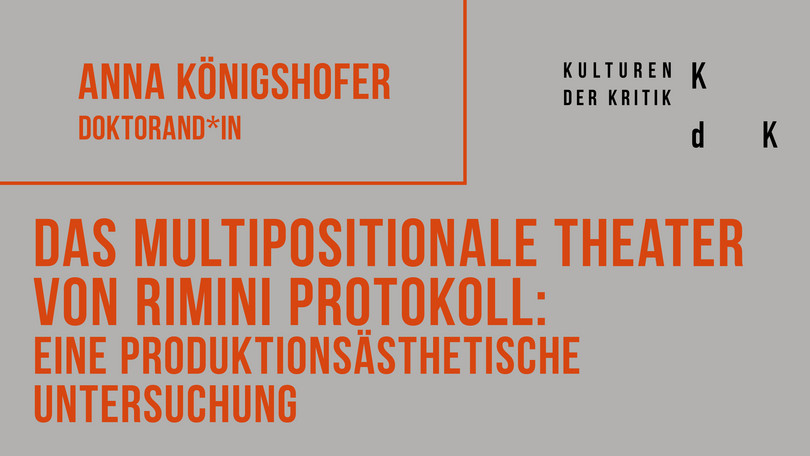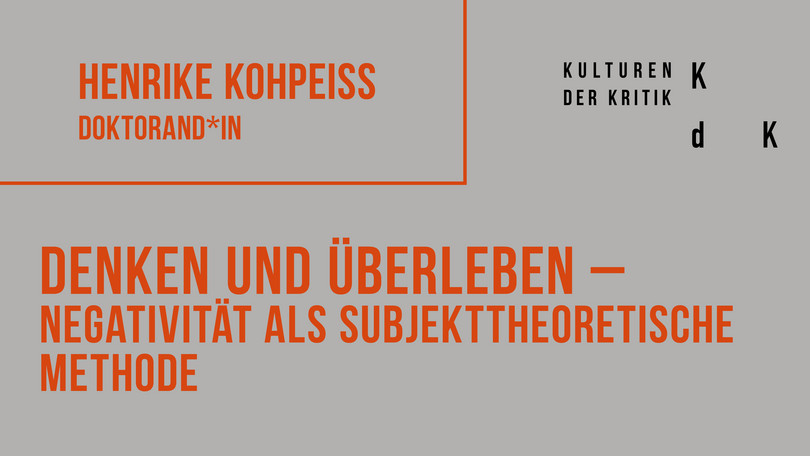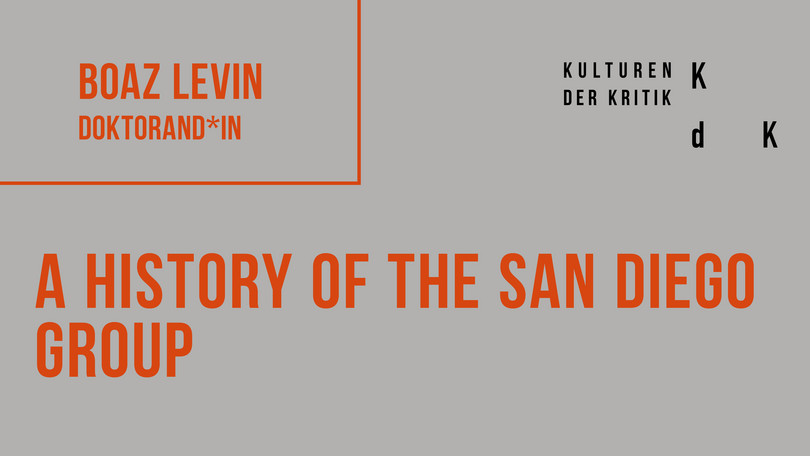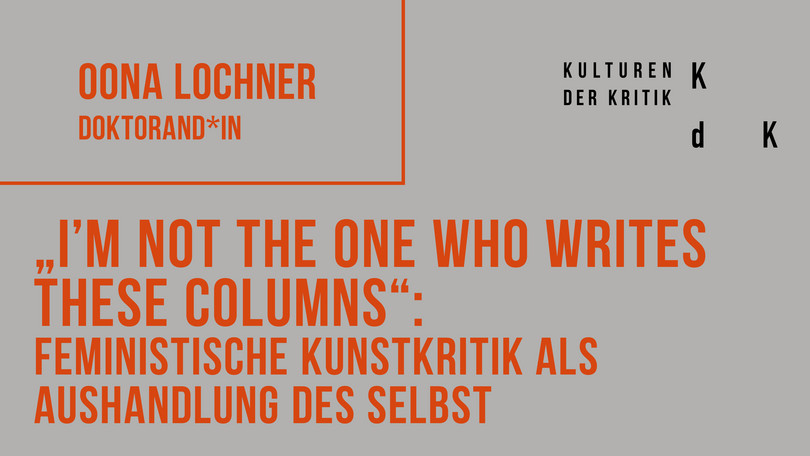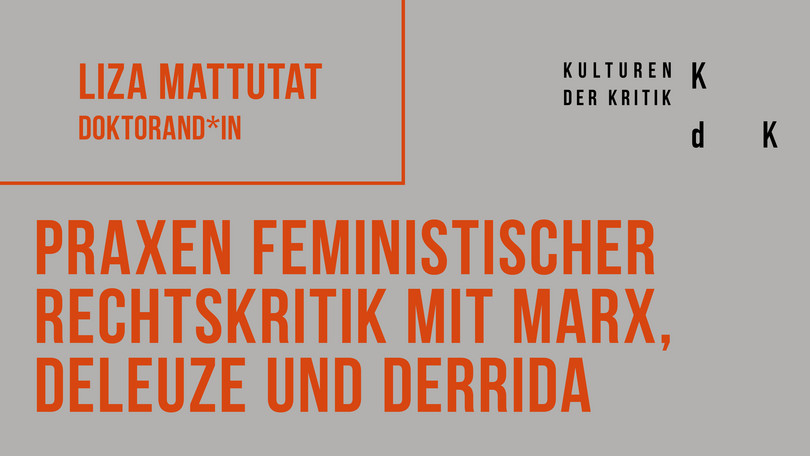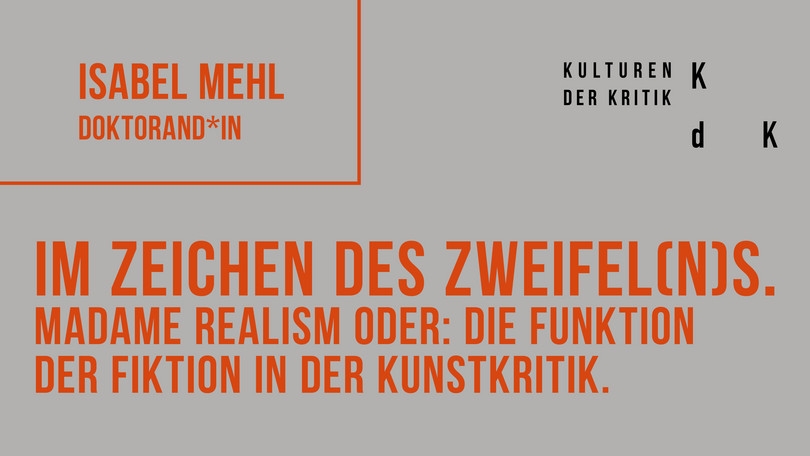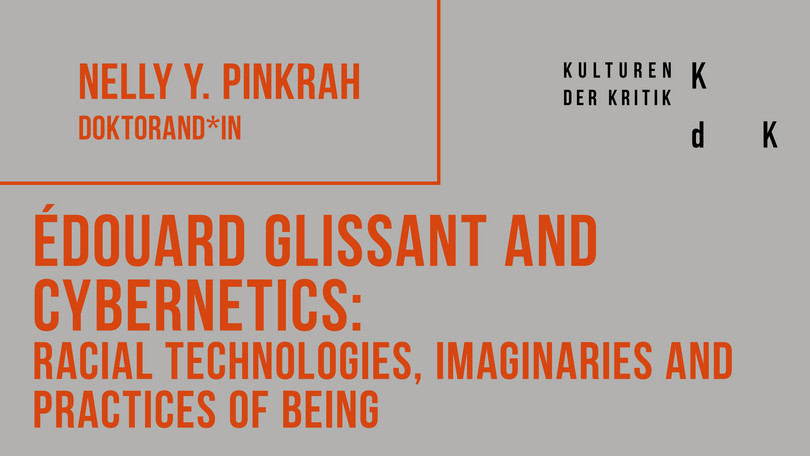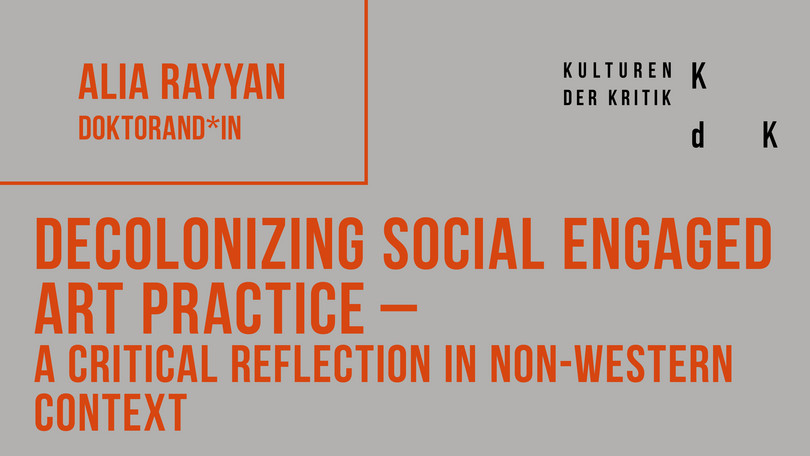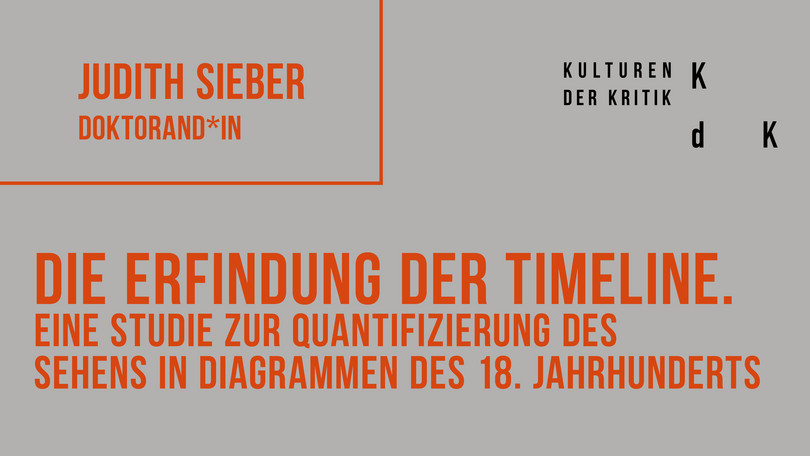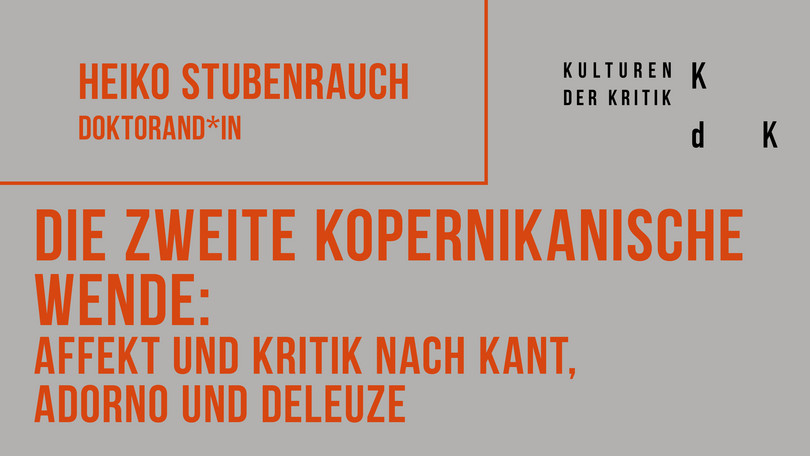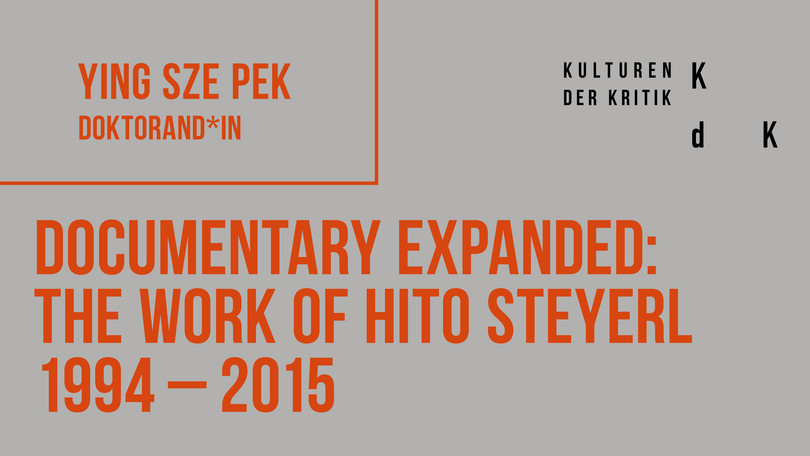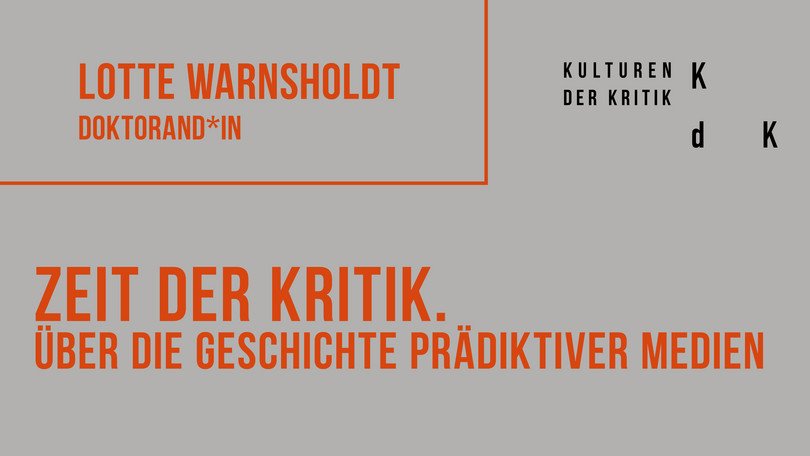Cultures of Critique
The Research Training Group ‘Cultures of Critique’ celebrated its farewell with a closing event on 19 June 2025 entitled THEORY IN/AS PRACTICE – PRACTICE IN/AS THEORY. CELEBRATING CULTURES OF CRITIQUE. Doctoral students from all three generations reflected on the relationship between theory and practice in their research in short presentations. A panel of international guests, who were also associated with the programme as Mercator Fellows, discussed the future of the university.
The programme, which began its work on 1 October 2016, ended on 30 September 2025. It examined the connection between criticism and culture in the history of modernity up to the present day, using concrete cases of art, media and social criticism. The aim was to re-examine this connection and develop an updated, culturally grounded understanding of criticism.
During nine years of joint research, our programme focused on critical practices and analysed their instances, subjects, framework conditions, claims to validity and modes of action, both in their specific situations and in their global interconnections.
Our research has shown that critical practices cannot be separated from the forms and media of their representation; these constitute the object of criticism and shape its social effects. Post- and decolonial as well as transcultural perspectives have challenged fundamental assumptions about criticism rooted in the Enlightenment, particularly on the basis of the finding that theoretical models have often developed out of intervening, protesting practices. The question of the relationship between theory and practice has occupied the programme throughout its entire duration.
We would like to thank all those involved in the Research Training Group ‘Cultures of Critique’ for their inspiring and reliable cooperation, support and encouragement. Our special thanks go to the German Research Foundation (DFG), which provided the financial basis for the project.
Melcher Ruhkopf mit Förderpreis Maritimes Kulturerbe ausgezeichnet
Für seine Dissertation „Das Logistische Museum. Museen des Seehandels als Infrastrukturen der Kritik“ wurde unser Kollegiat Melcher Ruhkopf mit dem Förderpreis Maritimes Kulturerbe des Deutschen Schifffahrtsmuseums/Leibnitz-Institut für Maritime Geschichte ausgezeichnet. Der mit 5000 € dotierte Preis würdigt herausragende Dissertationen, die sich mit maritimen Themen auseinandersetzen und Geschichte und Gegenwart miteinander verbinden. Die Preisverleihung findet am 5.9.2025 im Rahmen des Festakts zum 50. Jubiläum des Museums in Bremerhaven statt. Wir gratulieren von Herzen!
CFP: Lebenswelten schaffen: Künste im Gebrauch
Berlin, 6.–8.11.2025
Eingabeschluss: 30.04.2025
DFG-Sonderforschungsbereich Intervenierende Künste (Freie Universität Berlin / Leuphana Universität Lüneburg) & Brücke-Museum, Berlin
Die Tagung widmet sich der dynamischen Beziehung zwischen sogenannte „angewandter“ und „freier“ Kunst im frühen 20. Jahrhundert. Es formierten sich international künstlerische Bewegungen, welche die Kunst in den Alltag integrierten und die Grenzen zwischen Kunst und Leben auflösen wollten. Ausgehend von der Arts-and- Crafts-Bewegung in Großbritannien und der Werkbund-Debatte in Deutschland wurde in diesem Zuge das Kunsthandwerk um- und aufgewertet zu einer genuin künstlerischen Praxis.
Auch in gegenwärtigen Kunstdiskursen finden wieder verstärkt Diskussionen um das Kunsthandwerk statt, die sich, aus verschiedenen Perspektiven, entschieden gegen Hierarchisierungen wenden, wie u.a. die jüngste Biennale di Venezia, nicht zuletzt durch die Weitung des Blicks über europäische und US-amerikanische Horizonte hinaus. Theoretische Auseinandersetzungen wie etwa die “Craft Theory” grenzen sich wiederum von dezidiert künstlerischen Praktiken, vom Kunstbegriff und von der Zuordnung zur “High Art” ab und fordern einen eigenständigen Bereich.
Die meisten avantgardistischen Bewegungen im frühen 20. Jahrhundert fokussierten in ihren Entwürfen für Gebrauchsgegenstände ebenfalls das Verhältnis von Form und Funktion, um auf diese Weise gestaltend in die Lebenswelt einzugreifen. Die Tagung hingegen nimmt Künstler*innen und Gruppierungen in den Blick, deren Arbeiten auch in angewandten Bereichen einem emphatischen Kunstbegriff verpflichtet blieben. Daher schlagen wir die Formulierung “Künste im Gebrauch” vor. Diese gestalterischen Praktiken positionierten sich an der Schnittstelle zwischen “freier” und “angewandter” Kunst und wurden, wie das Kunsthandwerk insgesamt, auch aufgrund ihrer uneindeutigen Position in der kunsthistorischen Forschung wenig berücksichtigt.
Künstler*innen des Jugendstils oder der Wiener Werkstätten, die Mitglieder der „Brücke“, des „Blauen Reiter“, der „Nabis“, der Bloomsbury Group, aber auch einzelne Künstler*innen wie Pablo Picasso oder Gustav Klimt beschäftigten sich intensiv mit dem “Kunsthandwerk”. Allen gemeinsam ist die Betonung einer künstlerischen Ausrichtung der Gestaltung, die nicht auf Funktionalität orientiert ist. Die Arbeiten waren auch nicht für serielle Fertigung bestimmt und sind daher abzugrenzen vom Bauhaus und von jenen Strömungen, die in das (Industrial) Design etc. münden. Formen, Medien und Motivationen unterscheiden sich indes bei den Künsten im Gebrauch. Auffällig ist die Vielfalt an Genres und Medien, von Textilien und Möbelbau über Keramik bis hin zu Schmuck, Gebrauchsgrafik, Bühnenbildern und Kostümen. Die meisten dieser Arbeiten operierten über etablierte Gattungsgrenzen hinweg.
Die Tagung untersucht die Wechselwirkungen zwischen den Feldern “hohe” und “angewandte” Kunst, die sich um 1900 zu verschleifen begannen. Im Zentrum steht die wechselseitige Annäherung der Praktiken und Diskurse.
Zentrale Fragen lauten: Welche Formen, Medien, Materialien wandern um 1900 zwischen den beiden Bereichen der “angewandten” und der “freien” Kunst und welche diskursiven Verschleifungen gibt es in der Rede über diese Produkte? Wo lernten die Künstler*innen mit Holz, Ton, Metall oder Textilien umzugehen? Und was interessierte sie an dem Umgang mit diesen Materialien? Stammen Entwurf und Ausführung aus einer Hand? Und welche Bedeutung ergibt sich daraus für das Werk? Welche Rolle spielten soziale und ökonomische Bedingungen für die Produktion von Künsten im Gebrauch zu Beginn des 20. Jahrhunderts? Welche Netzwerke und Diskurse prägten das Verhältnis der Künstler*innen wie der Sammler*innen und Mäzen*innen zu den Künsten im Gebrauch? Gab es programmatische Stellungnahmen, etwa zur Einheit der Künste oder zur Verschleifung von Kunst und Leben? Mit welchen künstlerischen Strategien wurde diese im jeweiligen Gebrauchszusammenhang umzusetzen versucht? In welcher Weise leisteten die Künste im Gebrauch einen Beitrag zu ästhetischen oder gesellschaftlichen Veränderungen?
Ziel der Tagung ist es, den Nexus von Produktionsbedingungen, ästhetischen Strategien und angestrebten Wirkungsweisen in diesem Grenzbereich zu beleuchten. Die Tagung findet in Berlin statt und wird veranstaltet vom DFG-Sonderforschungsbereich Intervenierende Künste (Freie Universität Berlin, SFB 1512, TP A06: Künstlerische Lebensform als Intervention, PI: Beate Söntgen, Leuphana Universität) in Kooperation mit dem Brücke-Museum, Berlin (Lisa Marei Schmidt, Direktorin).
Entlang von drei geplanten Panels können folgende Aspekte thematisiert werden:
Wohnwelten: Gestaltung von Möbeln, Textilien, ganzen Wohnräumen; raumbezogene dekorative Malerei.
Arbeitswelten: Ökonomische und künstlerische Produktionsbedingungen; Erlernen kunsthandwerklicher Fertigkeiten; Arbeitsteilung; Ateliersituationen.
Beziehungswelten: Künste im Gebrauch, wie etwa Schmuck oder Textilien, als beziehungsstiftendes Tauschobjekt; Auftragsarbeiten für Sammler*innen, Mäzen*innen; Gebrauchsgrafik als netzwerkbildendes Kommunikationsmedium.
Die deutschsprachige Tagung strebt eine inter- und transdisziplinäre Perspektive an und begrüßt Beiträge aus Kunst-, Design-, Theater- und Kulturwissenschaften, aus der Soziologie und den Wirtschaftswissenschaften sowie aus der Entwurfs- und kuratorischen Praxis. Reisekosten und Unterkunft werden gemäß des Bundesreisekostengesetzes erstattet. Wir erbitten Abstracts zu Fallstudien und/oder zu theoretischen Überlegungen. Bitte senden Sie Ihr Abstract (max. 2.500 Zeichen) bis zum 30. April 2025 an Hanna Schwarzenberg (hanna.schwarzenberg@leuphana.de). Die Vorträge sollen 20 Minuten umfassen. Eine schriftliche Skizze (5-6 Seiten) soll drei Wochen vor der Tagung unter den Beitragenden zirkulieren. Die Tagung wird vom 6.-8. November 2025 in Berlin stattfinden. Die Manuskripte (25.000 Zeichen und maximal 8 Abbildungen) für die geplante Publikation werden bis 15. Dezember 2025 erbeten.
Duke University – Leuphana University Gender, Queer and Transgender Studies Workshop for Doctoral Candidates
Professor Ben Trott (Leuphana University of Lüneburg) and Professor Gabriel Rosenberg (Duke University) have initiated a Gender, Queer and Transgender Studies Workshop for Doctoral Candidates in the humanities working on questions of gender and sexuality at the two institutions. The goal of the project is to facilitate doctoral candidates’ development of their dissertations, provide doctoral researchers the opportunity to present their work to an international scholarly audience, enable access to key international archives, and develop and consolidate international networks and scholarly exchange between both faculty and doctoral candidates.
In a first step, five doctoral candidates from Leuphana University of Lüneburg travelled to Duke University in March 2024 where they participated in a two-day workshop with three doctoral candidates from Duke University and one from the Global History program at the Freie Universität Berlin. The workshop was also joined by Dr. Zavier Nunn, Duke University Postdoctoral Associate in Histories of the Transgender Present. The nine doctoral candidates each delivered 20-minute talks based on one of their dissertation chapters (or another piece of writing) as well as a ten-minute critical response to one of the talks. In a second step in the exchange, participants will develop their talks into a draft chapter or article to be circulated ahead of a workshop in Lüneburg in June for critical feedback and development.
Prof. Trott is a Visiting Professor at the Institute for Philosophy and Art History (IPK) in the School of Culture and Society at Leuphana University, speaker of the Center for Critical Studies (CCS) and co-speaker of the Gender and Diversity Research Network. Prof. Rosenberg is Associate Professor of Gender, Sexuality and Feminist Studies and of History at Duke University (Durham, NC, USA). Dr. Nunn is Postdoctoral Associate in Histories of the Transgender Present at Duke University. In summer 2024, he takes up a Mellon Fellowship at the Society of Fellows in the Humanities at Columbia University (NY, USA).
Third generation projects
We are very pleased to welcome the third generation of doctoral students at Cultures of Critique! Thirteen new members have started work in the winter term 2022/2023 and are making important contributions to the updating of a concept of critique in cultural studies with their projects.
- Kelly Bescherer: Identity as Deportability: On ‘Identitatsklärung’ as a Contested Practice of Control within the German-European Deportation Regime
- Jan-Hauke Branding: Gay Radical Theory Formation as (a Constellation of) Critique
- David Cabrera Rueda: A museum of memory for Colombia: The emergence of a controversial space
- Raphael Daibert: Lifting the Sky: Practices to Sustain Worlds Otherwise
- Volha Davydzik: Re-building Solidarity and Networks of Care Through Art: Political Art Practices in Rebellious Societies
- Felix Leonhard Esch: The Dialectics of the Body Politic - A Study on the Transformation of Modern Concepts of Society
- Jörg Hügel: ‚Primitive Communism‘ as a narrative concept between 1848 and 1940
- Dyoniz Kindata: Poetic and Photographic Practices in the Kiongozi German East African Colonial Newspaper 1885 to 1918
- Stasya Korotkova: Cross-dressing, Sexual, and Gender Dissent in Pre-Soviet Cinema (1908-1920)
- Melcher Ruhkopf: The Logistical Museum – Circulation and Connectivity in Contemporary Museum Practice
- Laura Felicitas Sabel: Praxes of the Transitory: Restitution, Museum Practice, and the (Im)material Cultural Heritage of the Tairona’s Descendants in the Sierra Nevada de Santa Marta, Colombia
- Donovan Stewart: The Ecotechnical Community: Hospitality and the Organisation of Locality
- Lukas Stolz: Facing Reality: Between Doom and Cruel Optimism
- Julian Volz: ‚Alger la Blanche‘ becomes ‚Alger la Rouge‘ – On the heritage of the anti-colonial movements in contemporary art

